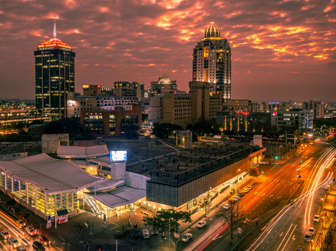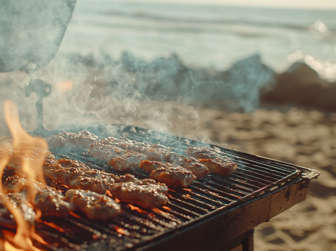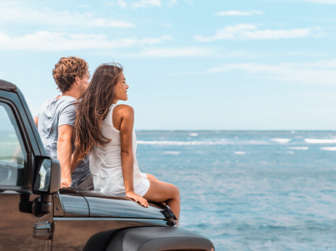During the northern hemisphere’s summer months, road trips became 2020’s summer holiday of choice, thanks to Coronavirus. We predict we’ll see the same here in South Africa over the next few months, and we encourage you to get out and explore South Africa… but do it safely. One of the first questions you might ask is, is Airbnb or hotel safer?
There’s only two ways to ensure you don’t get infected with the Coronavirus: Stay at home and see no one. But let’s face it, we tried that for months and it’s not sustainable. People need people, and we need to live our lives; but it’s important that we find a “new normal” that keeps safety top of mind. We need to find some balance between maintaining our sanity and taking a risk.
After months of strict lockdown rules, South Africa’s local tourism needs our support. Whether you choose to spend your money at an Airbnb or hotel, you will be helping to uplift the sector.
-.jpg)
Coronavirus spreads through interaction with other people, and the more people you interact with, the higher your chances of being infected. Hotels are filled with staff and other guests, and there are lots of shared areas, so you will encounter more people in a hotel than you would in a private home rental.
However, the Tourism Business Council of South Africa (TBCSA) has created standardised hotel operating procedures that align with recommendations from the World Health Organisation (WHO) and the Department of Health. This means that any hotel that has agreed to uphold and adhere to the standard protocols for COVID-19 operations will likely have high cleanliness standards. Look for accommodation and restaurants that are certified members of the Travel Safe, Eat Safe programme.
Some of these protocols include, but are not limited to:
- Face coverings are required in all shared areas
- Hand sanitizer stations are made available throughout the establishmen
- Employees have been educated on best practices and undergo temperature testing upon arrival
- Rooms are deep cleaned and hygienically sealed
If you choose a home rental, you will have a better chance of limiting your contact with other people. However, in most cases there is no way to ensure the cleanliness standards you might find at a hotel.
Before choosing your accommodation, put your mind at ease by visiting the property’s website or talking to the host to find out more about what they’re doing to help make your stay more comfortable.
-.jpg)
Don’t put your safety and well-being solely in the hands of the property you choose to stay at. Here are some preventative measures you can take to reduce the chance of infection:
- Bring your own cleaning materials and clean the accommodation when you arrive. Wipe down high-touch areas like light switches, remote controls, tabletops, bathroom fixtures, etc.
- Decline or limit housekeeping services so you reduce the number of interactions with other people
- Opt for room service if it’s an option
- Wear a mask whenever you’re in a shared area, and practice social distancing
-.jpg)
Follow this checklist before you leave to ensure a safer holiday drive:
- If you hear any strange noises coming from your car, get it checked out, as it might be a sign that you need some routine maintenance. Waiting until something breaks is not only dangerous, but it can cost you more in the long run, plus that problem could get worse while you’re on your journey. A Service Plan through MotorHappy helps you stay on top of your car’s scheduled services. Click here to get a quick online quote.
- Check your tyre pressure and tread depth. Also check the wear on all your tyres. Uneven wear could indicate a worn steering component, or an over- or underinflated tyre, or bad alignment. Get your tyres balanced and aligned, and replace any that are badly worn. Make sure that your car has a spare tyre in good condition, as well as the correct tools if you need to change one.
- Fill the windshield washer reserve
- Replace wiper blades if necessary
- Get your car battery tested
- Pack a first aid kit that includes basic first-aid contents such as plasters, painkillers, disinfectant, cotton wool and Burnshield, for example.
The Ford Ranger Thunder: Customised styling and bi-turbo engine
Ineos Grenadier: A powerful new SUV on SA’s roads


